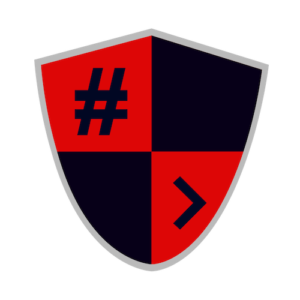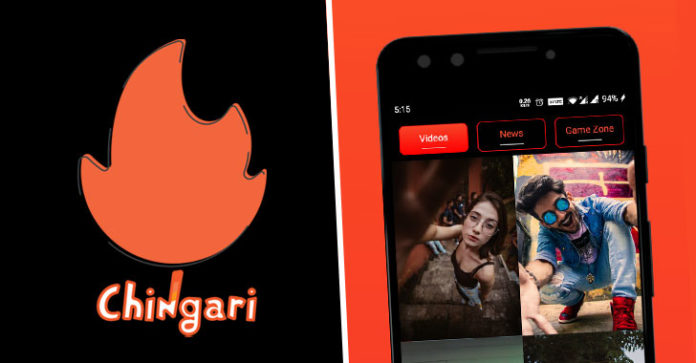Following defenselessness exposure in the Mitron application, another viral TikTok clone in India has now been discovered powerless against a basic however simple to-misuse confirmation sidestep helplessness, permitting anybody to capture any client record and mess with their data, content, and even transfer unapproved recordings.
The Indian video sharing application, called Chingari, is accessible for Android and iOS cell phones through authority application stores, intended to let clients record short-structure recordings, get up to speed with the news, and associate with different clients by means of an immediate message highlight.
Initially propelled in November 2018, Chingari has seen an enormous flood in ubiquity in the course of recent days in the wake of India’s restriction on Chinese-possessed applications before the end of last month, crossing 10 million downloads on the Google Play Store in less than a month.
The Indian government as of late prohibited 59 applications and administrations, including ByteDance’s TikTok, Alibaba Group’s UC Browser and UC News, and Tencent’s WeChat over protection and security concerns.
While these applications have been delisted from Apple and Google’s application stores, a few home-developed other options, for example, InMobi Group’s Roposo, Chingari, and Mitron, have inclined up their endeavors to capitalize on the void left by TikTok.
Any Chingari User Account Can Be Hijacked in Seconds
The Chingari application for iOS and Android requests that clients register a record by conceding fundamental profile access to their Google accounts, which is a standard piece of OAuth-based validation.
In any case, as indicated by Girish Kumar, a cybersecurity specialist at Encode Middle East firm in Dubai, Chingari utilizes a haphazardly created client ID to bring separate profile data and other information from its server without depending on any mystery token for client confirmation and approval.
As showed in the video Kumar imparted to The Hacker News, not exclusively can this client ID be effortlessly recovered, it very well may be utilized by an assailant to supplant a casualty’s client ID in HTTP solicitations to access the record data.
“The assault doesn’t require any association from the focused on clients and can be performed against any profile to change their record settings or transfer substance of the aggressor’s decision,” Kumar revealed to The Hacker News in an email meet.
As The Hacker News uncovered back in May, Mitron experienced the very same imperfection, permitting anybody with access to the novel client ID to login to the record without entering any secret word.
“When a casualty’s record is undermined utilizing the technique appeared in video an assailant can change username, name, status, DOB, nation, profile picture, transfer/erase client recordings and so on in short access to the whole record,” Kumar said.
That is not all. A different component in Chingari that permits clients to kill video sharing and remarks can be just avoided by tweaking the HTTP reaction code ({“share”:false,”comment”:false}), in this way making it feasible for a malignant gathering to share and remark on limited recordings.
Chingari Patch Update To Be Released Today
Kumar dependably revealed the issue to the producers of Chingari prior this week, and the organization accordingly recognized the powerlessness.
The Hacker News likewise contacted Sumit Ghosh, author of Chingari, who affirmed to the distribution that the issue will be fixed with Chingari adaptation 2.4.1 for Android and 2.2.6 for iOS, that is relied upon to be turned out to a great many its clients by means of Google Play Store and Apple application store beginning today.
Other than this, to ensure clients who don’t refresh their application on schedule, the organization has chosen to impair access to the back-end APIs from more established renditions of the application.
In the event that you are a Chingari client, it’s strongly suggested that you update the application when the most recent rendition is accessible to keep away from possible abuse.
In a different episode, a french scientist recently detected that the site of Globussoft, the organization behind Chingari, had additionally been undermined to have malware contents, diverting its clients to malevolent pages.
Such a deplorable condition of security features that grasping indigenous applications for patriotism is a certain something, however applications, particularly for non-technically knowledgeable clients, must be tried thoroughly while remembering protection and security.
Not A Data Breach!
UPDATE — After The Hacker News report, a few media distributions have secured a similar episode as an ‘information break,’ which completely is inaccurate.
That is on the grounds that the revealed powerlessness doesn’t permit aggressors to take a casualty’s very own data put away on the organization servers; rather, it could have been abused to alter or penetrate a focused on account.
Besides, since Chingari doesn’t request that its clients enter any close to home data or a secret phrase, and uses ‘sign in with Google’ without putting away their email addresses, each of the an aggressor could do is destruction or abuse somebody’s record to spread deception or unseemly substance.
A representative for the organization revealed to The Hacker News that the Chingari group fixed the helplessness inside 24 hours after specialists detailed it to the organization, and have discovered no proof of any abuse or information bargain.





![[HINDI] What is DoS attack and DDoS attack?](https://bittentechsolutions.in/wp-content/uploads/2020/04/ddos-218x150.jpg)
![[HINDI] What is juice jacking? Think twice before using public USB ports](https://bittentechsolutions.in/wp-content/uploads/2020/04/juice-jacking-risk-1200x675-1-218x150.jpg)










